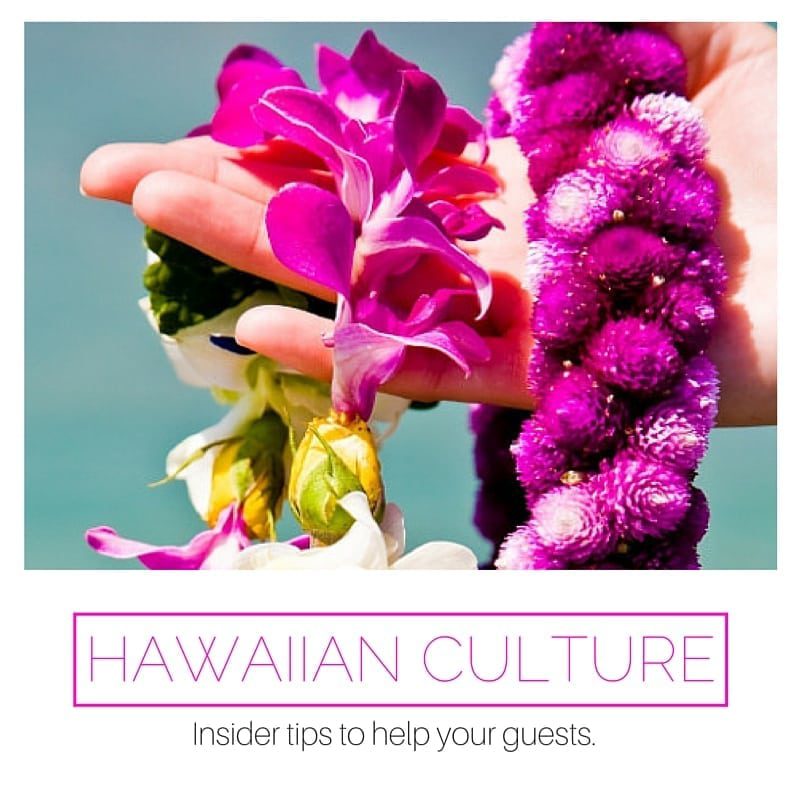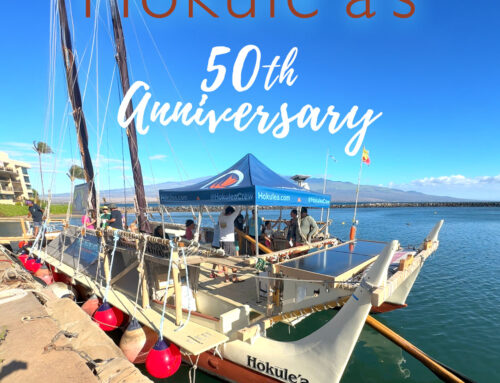We get a lot of visitors here in Maui, and try to be very warm and welcoming to all of our guests. We love sharing our island with you and pride ourselves on our hospitality. But respect is a two-way street; you have to give it to earn it. In some instances, even our legendary goodwill can be stretched if a tourist makes a particularly bad faux pas. That doesn’t mean you have to understand Hawaiian culture like a local, but there are a few tricks you can learn that will delight your hosts. Here are five insider tips to getting along with the locals during your trip to Maui.
1. Pick up a few local words
The two most important native words that you will likely hear all the time are Aloha and Mahalo. Aloha means both “hello,” and “goodbye,” and is used as a greeting when seeing someone for the first time and wishing them well at parting. If someone says “Aloha” to you, say it right back.
Mahalo means “thank you.” If someone does you a kindness, don’t be shy about saying, “Mahalo,” to them. Locals will be pleased that you used this word.
And finally, learn the art of the Shaka, a special Hawaiian hand signal were the thumb and pinky stick out. This special signal can be used in greeting, as a gesture of gratitude, or simply as a way to say “hang loose, friend.” If someone gives you the shaka sign, give it back.
2. Go with the flow of Hawaiian time
“Hawaiian time” is the way of life on the island. We like to do things a little slower here and live in the moment. That means events might not start or end exactly on time, and that’s okay as long as everyone is having fun. Keep this in mind when you sign up for tours or lessons or make a dinner date with a local. Don’t keep looking at your watch or phone. Let the experience of your time in Maui happen as it will. That is the beauty of Hawaiian time.
3. Understand locals vs. natives vs. Hawaiians
Knowing what to call the people living on Hawaii can be a little tricky, and it is easy to cause offense without meaning to or at least revealing yourself as a tourist. Those who live on the island are known as “locals.” “Hawaiians,” refer to only those people who are of native Hawaiian ethnicity. Someone who moved to Hawaii to retire six years ago is definitely a local but certainly not a “Hawaiian.” You should never call anyone a “native.” Sometimes it can be difficult to know whether to call someone a “Hawaiian” or “local.” To make it easy, just call everyone a local. (Native Hawaiians are also locals, but locals may not be Hawaiians.) Try to avoid calling anyone a native.
4. Keep your lei
Giving leis, pretty garlands of flowers, is a much-loved tradition in Hawaii. It is an important gesture of welcome and warmth. Leis can be given by men or women to men or women. It is not a gender-specific thing.
It is an honor to receive a lei, so accept it as a gesture of inclusion. Allow the giver to put the lei around your neck. They may also give you a kiss or a hug. It is rude to try and put the lei on yourself or to take it off right away. Keep it on for at least a while to show that the positive gesture is accepted and appreciated.
5. Don’t forget to tip
Though Hawaii can seem like a world unto itself, it is a part of the United States and cultural tipping norms have been adopted. That means tips are expected and highly appreciated within the service industry. You can’t go wrong with a 15% – 20% tip. If you have questions about when to tip and how much is appropriate, check out this useful article from Trip Advisor.
With these five tips in mind, you will likely get along with the locals (not “natives”) just fine when you visit Maui. Just remember to “go with the flow,” and be polite, and you shouldn’t have a problem. Next up, you need to find great accommodations. Contact Ali’i Resorts to find an excellent and affordable vacation condo in South Maui.







